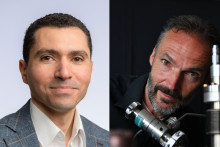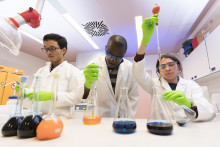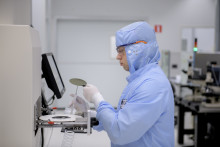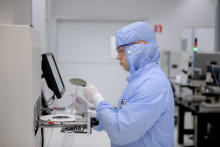More and more scientific articles can be read by anyone free of charge (open access), but how about the underlying data? Open science espouses the ideal that scientific data should be easily accessible too.
This has a variety of benefits. It avoids duplicate work, for example. Researchers can reuse the data or combine it with other data to arrive at new insights. And it also makes it easier to check articles for inaccuracies.
Paving the way
But sharing data is easier said than done. The Dutch Research Council has now funded projects that are intended to pave the way. Researchers are working on issues such as effective data visualisation in software that is available free of charge and knowledge sharing within a specific field of study.
That ideal might be achievable for a spreadsheet with figures, but what about interviews, observations and historical sources? In some of the approved projects, for instance, researchers are going to look at how they can share qualitative research and historical source material effectively.
Escape room
Another project aims to convince researchers by ‘allowing them to get to know various aspects of open science in a fun way’ in an escape room.
A total of one million euros was available in this first round of the Open Science Fund.
Open Science Fund Allocations, 2021
|
Institution |
Allocated |
|
UvA Amsterdam |
5 |
|
Tilburg |
3 |
|
Utrecht |
2 |
|
Maastricht |
2 |
|
Groningen |
2 |
|
Utrecht |
2 |
|
Radboud MC |
1 |
|
VU Amsterdam |
1 |
|
Royal Netherlands Academy of Arts and Sciences |
1 |
|
Royal Netherlands Academy of Arts and Sciences/IISG |
1 |
|
Twente |
1 |
|
AMC Amsterdam |
1 |
|
Delft |
1 |
|
Leiden UMC |
1 |
|
Nijmegen |
1 |
|
Leiden |
1 |







